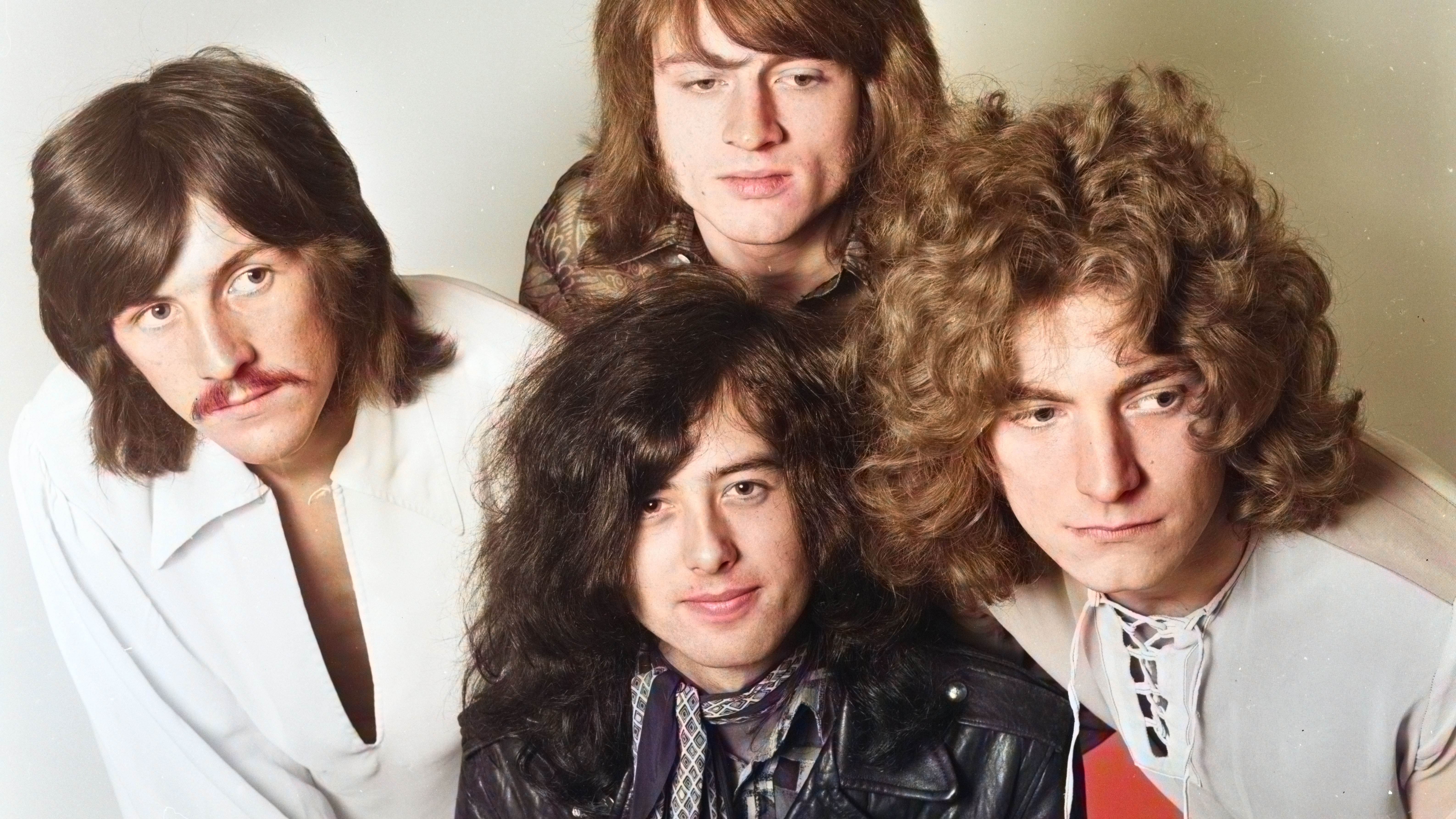“I dragged George Harrison in to listen to it on the way back from a Beatles session. He didn’t get it at all”: When the first Led Zeppelin album confused a Beatle — and was ignored by Mick Jagger
The album was made for a bargain price of £1,782

On 19 August 1968, in a cramped basement room in Gerrard Street, in the heart of London’s Soho, the four members of the band that would become Led Zeppelin played together for the first time.
They were there to rehearse for the Scandinavian tour, due to begin on 7 September.
The small basement room was an austere setting, but as the group’s bassist John Paul Jones remembered, it was an incendiary and unforgettable moment.
“There was just wall-to-wall amplifiers and a space for the door,” recalled Jones in a 1990 interview on the official Led Zeppelin website. “And that was it. Literally, it was everyone looking at each other. ‘What shall we play?’”
They settled on Train Kept A-Rollin’, an old blues number popularised by The Yardbirds. Then, “the whole room just exploded,” said Jones.
The sound that they instantly and effortlessly created was a revelation, and fuelled a sense of excitement among all four members.
“I could feel that something was happening to myself and to everyone else in the room,” recalled singer Robert Plant on the Led Zeppelin Official website.
Want all the hottest music and gear news, reviews, deals, features and more, direct to your inbox? Sign up here.
“It felt like we’d found something that we had to be very careful with because we might lose it, but it was remarkable — the power.”
When Led Zeppelin recorded their debut album, they had no record deal.
This had its upside. While it meant they had to front the recording costs, it also gave them creative carte blanche to record exactly what they wanted without any record company interference.
They worked quickly. According to guitarist Jimmy Page, the whole album, plus mixing, took 36 hours of studio time spread over a few weeks, to record.
In Chris Welch’s 1974 biography Led Zeppelin, Page says he knew exactly how many hours the album took because he paid the £1,782 invoice.
The first thing to note about Led Zeppelin’s debut album is how great it sounds.
Drop the needle on opening track Good Times, Bad Times and it’s a big, round, warm and resonant sound.
Much of this is due to the album’s producer Jimmy Page and the engineer Glyn Johns, the latter of whom would go on to work with The Beatles, The Stones and The Who.
During the recording of the album, Johns inadvertently stumbled upon a new way of recording John Bonham’s drums.
While setting up multiple mics for Bonham, Johns accidentally had one of them directed towards one side of the stereo mix. The rest of Bonham’s performance was emanating from the middle.
“Half of the drums were coming out of the left, by mistake,” said Johns in a Q&A with Something Else in 2013. “And I thought: I wonder what it would sound like if I took the one in the middle, and put it on the other side. And there it was – the beginning of stereo drums.”
The result was a colossal drum sound, with dynamic stereo cadences that would propel tracks such as Communication Breakdown, Dazed And Confused and How Many More Times.
Glyn Johns has never forgotten the excitement he felt when the band recorded the Led Zeppelin album.
“Blew my fucking socks off,” he enthused in Barney Hoskyns’ 2012 book Trampled Underfoot: The Power And Excess Of Led Zeppelin.
His zeal was undimmed two years later in an interview with Uncut. “I don’t think I’ve come down yet from the buzz I got from being in the room,” Johns said. “It was utterly inspiring and incredibly simple to record. They were well rehearsed and masters at what they did, which is why it took only nine days, including mixing.”
So enthused was Johns that in December 1968 he took an acetate of the Zeppelin album into a production meeting for The Rolling Stones Rock and Roll Circus film, to play to Mick Jagger.
“I said, ‘This is going to be huge’ but Mick wasn’t interested in hearing it,” Johns recalled.
In some ways, Zeppelin were a sonic generation on from the Stones and their contemporaries, who were unmoved by this heavier take on the blues.
As Keith Richards once famously said of Led Zeppelin: “They’ve got the rock, but not the roll”.
Undeterred by Jagger’s alleged indifference, Glyn Johns turned to one of The Beatles.
“I dragged George Harrison into Olympic [studio] to listen to it on the way back from a Beatles session,” Johns told Uncut. “He didn’t get it at all, which I thought was extraordinary. Too set in his ways, maybe. I still think this album is their best. It shook everything from the roots.”

Neil Crossley is a freelance writer and editor whose work has appeared in publications such as The Guardian, The Times, The Independent and the FT. Neil is also a singer-songwriter, fronts the band Furlined and was a member of International Blue, a ‘pop croon collaboration’ produced by Tony Visconti.
You must confirm your public display name before commenting
Please logout and then login again, you will then be prompted to enter your display name.

